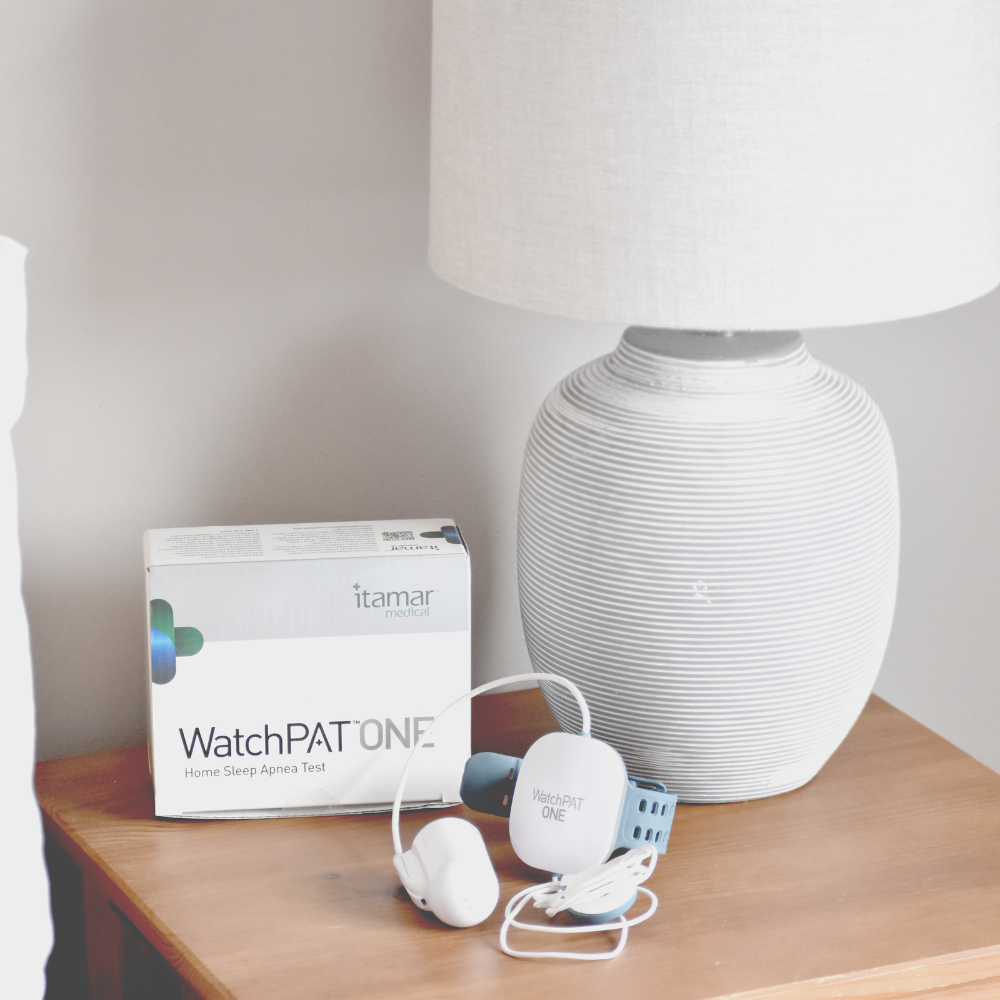Fact Checked
Intus Healthcare’s writers, customer service team, and sleep experts review and ensure this information is accurate.
Last updated on March 28th, 2025 at 02:27 pm
Many people are prone to oversleeping, sometimes known as hypersomnia. Oversleeping is typically defined as consistently sleeping significantly more than the recommended amount.
There can be numerous underlying causes, such as depression, Sleep Apnoea, narcolepsy, sedating medications, heart diseases, irregular sleep schedules and problems with the thyroid gland.
Regardless of what triggers this condition, the associated side effects can be serious. This article will explore the reasons and side effects of oversleeping.
Table of Contents
Why do I sleep so much?
If you are always feeling tired, even after a whole night of sleep, it can be a sign of any underlying condition such as:
- Obstructive Sleep Apnoea (OSA)
- Circadian rhythm disorders
- Idiopathic Hypersomnia
- Parasomnias
- Narcolepsy
- Mental health conditions
- Hypothyroidism
Oversleeping and Obstructive Sleep Apnoea
Sleep disorders are commonly associated with oversleeping and excessive daytime sleepiness due to lack of sleep. It can make you feel constantly tired no matter how much you sleep.
Obstructive Sleep Apnoea is one of the most common types of sleep disorders. Sleep Apnoea causes repeated breathing pauses throughout sleep, which causes the body to wake up momentarily to regain oxygen.
Repeated breathing interruptions lead to broken sleep, making sufferers feel constantly tired and as if they are oversleeping.
Symptoms of OSA include:
It has been found that a short sleep duration, defined as less than seven hours, raised people’s risk for death by 12 percent and people who slept more than eight or nine hours a night were 30 percent more at risk(1).
If you think you could have OSA, take a sleep test.

Home Sleep Apnoea Test
The test monitors your heart rate, snoring intensity, blood oxygen levels, body positioning, and more, providing accuracy comparable to testing used in sleep clinics for in-depth sleep analysis.
The simple-to-use test takes just one night to complete, and results are returned within two working days after completion.
Our experienced NHS-qualified sleep professionals independently analyse all studies, providing follow-up advice and support.
Oversleeping and Circadian rhythm disorders
Your circadian rhythm is your natural sleep-wake cycle; a disruption is known as a circadian rhythm sleep disorder.
Oversleeping and Idiopathic Hypersomnia
Feeling excessively tired throughout the day, even after a whole night of sleep, can indicate Idiopathic Hypersomnia.
Oversleeping and Parasomnias
This sleep condition causes abnormal behaviour during sleep, including talking, walking, moving around, or doing other unusual things. It may seem as if you’re awake to those around you, but you are unconscious. The nighttime disruptions can make it hard to gain quality sleep, leading to sleepiness.
Oversleeping and Narcolepsy
Narcolepsy causes overwhelming and uncontrollable urges to fall asleep during the day. People with narcolepsy have episodes of extreme sleepiness and cataplexy during the daytime due to low levels in the brain of a protein called hypocretin.
Oversleeping and Hypothyroidism
Hypothyroidism is when someone has an underactive thyroid which causes excessive sleepiness due to the hormonal imbalance.
Oversleeping and Mental health conditions
Mental health conditions such as anxiety and depression can make it harder to fall asleep, causing sleepiness during the day.
Oversleeping is a typical symptom of depression, as many sufferers feel it is an escape from the day.
Other reasons for oversleeping
Sleeping too much can be caused by numerous factors, which could indicate an underlying condition such as:
- Diet
- The consumption of stimulants or sedatives
- Certain types of prescription medications
- Environmental factors such as temperature and humidity
- Stress
One typical example is the physical stress our bodies endure daily. For example, those employed in the construction sector are likely to require more time for their bodies to heal on a nightly basis compared to those working in an office environment.
Illness and stress will likewise affect our sleeping patterns. Those recovering from an ailment might need more rest as their bodies are still healing.
Experiencing a significant amount of stress could also need more time to “recharge their batteries” due to the debilitating impacts of these emotions on the body.
Is too much sleep bad for you?
Yes, sleeping too much can be problematic as it’s connected to various health conditions. Sleeping too much does not directly make you sick; however, it can be a sign of an underlying condition.
Health risks of oversleeping
Here are some health risks and dangers that can develop from oversleeping:
- Diabetes: Those who are overweight and oversleep are at a heightened risk of type two diabetes, as fatigue can cause low blood sugar levels.
- Social impairment: Oversleeping can interfere with a person’s social life and work responsibilities. Missing appointments, showing up late for work or social engagements, and decreased productivity are common consequences.
- Obesity: Some studies have suggested a link between oversleeping and weight gain or obesity. The reasons for this association are complex and may be related to changes in metabolism and physical activity.
- Inflammation: Chronic oversleeping may contribute to inflammation in the body. Inflammation is a known factor in the development of atherosclerosis (the buildup of plaque in arteries) and other cardiac-related conditions.
- Disrupted Circadian Rhythms: Oversleeping can disturb your body’s circadian rhythms, which regulate various physiological processes, including the cardiovascular system. Irregular sleep patterns can lead to an increased risk of cardiac issues.
- Heart disease: Sleeping for an excessive amount of time causes the body to go into a state of stress, increasing c-reactive protein levels (CRP), a key inflammation marker linked to heart disease.
- Metabolic disorder: Different metabolic conditions are linked to frequent sleepiness, including Gaucher’s disease, Hemochromatosis, and Phenylketonuria (PKU).
- Chronic headaches: Headaches are associated with oversleeping, as the body is constantly starved of hydration and food, causing headaches.
- Depression: Oversleeping is sometimes a symptom of depression. People who experience depression may be more likely to engage in unhealthy behaviours, such as overeating or lack of exercise, which can further increase the risk of heart disease.
- Difficulty concentrating: Excessive sleep can impair cognitive function, leading to problems with concentration, memory, and decision-making.
- Low energy & sleepiness: Ironically, oversleeping can lead to increased daytime sleepiness and grogginess. People who oversleep may feel sluggish and have difficulty staying awake and alert during the day.
- Underlying Medical Conditions: Chronic oversleeping could indicate an underlying medical condition, such as Sleep Apnoea. Sleep Apnoea involves repeated pauses in breathing during sleep, leading to oxygen deprivation and increased strain on the heart.
- Hypothyroidism: Thyroid imbalances are linked to excessive sleepiness; hypothyroidism is the leading cause of hypersomnia.
- Bruxism: Bruxism, also known as teeth grinding or teeth clenching, can lead to sleep disturbances for both the person experiencing it and, often, their sleep partner due to the noise and motion associated with teeth grinding. These disruptions may lead to fragmented or shallow sleep, reducing sleep quality. In some cases, people with bruxism may wake up multiple times during the night without realizing it, potentially causing them to feel like they need more sleep or leading to excessive daytime sleepiness, which could be perceived as oversleeping.
- Chronic pain: Physical issues such as lower back pain can also signify oversleeping as the body tends to remain in a fixed position for unnaturally long periods.
How long should I sleep?
Most people have heard that sleeping between seven and nine hours every night produces the most optimal health benefits. However, this is only partially true. The amount of rest that we require will also depend upon our age.
Sleeping helps restore damaged tissues, produce essential nutrients, and maintain mental equilibrium. For example, infants can often sleep between 17 and 19 hours daily. Sleeping like this is vital, as their bodies are growing extremely fast.
As we age, sleeping patterns tend to change. When we reach adulthood (older than 25), most individuals will require between seven and nine hours of rest. This number only slightly decreases (between seven and eight hours) for those who are over the age of 65.
National Sleep Foundation sleeping guidelines:
| Age | Hours of sleep per day |
| 0-3 Months | 14–17 hours (includes naps) |
| 4–11 months | 12–15 hours (includes naps) |
| 1–2 years | 11–14 hours (includes naps) |
| 3–5 years | 10–13 hours |
| 6–13 years | 9–11 hours |
| 14–17 years | 8–10 hours |
| 18–64 years | 7–9 hours |
| 65 years and older | 7–8 hours |
How to stop oversleeping
The sleep you gain at night influences the day ahead and helps your brain consolidate memories and regenerate. Here are a few things you can do to adjust your sleeping pattern:
- Create a bedtime routine: Sleeping at the same time every night will help your body adjust.
- Create a good sleep environment: Keeping your room dark at night and putting down your devices will allow you to unwind. Blue light from electronics makes it harder to sleep as it prevents the sleep hormone from working.
- Avoid having a lay-in: While staying in bed longer on the weekends may feel beneficial, it can be detrimental to your sleep routine. Try to get out of bed at the same time as you do during the week.
- Create healthy eating habits: Different foods and drinks can alter your sleeping patterns.
- Avoid naps: Napping throughout the day can make you feel more tired, leading to oversleeping. If you find it hard to stay awake, it could be a sign of an underlying condition, such as a sleep disorder.
- Regularly exercise: Exercising throughout the day can improve your sleep and mood.
Discovering the Root Cause
One of the most common reasons for oversleeping is Sleep Apnoea due to lack of restorative sleep. The first step is to consult an expert as they can help you identify if it is present so you can begin to make proactive changes over time, which will help you start the path to recovery.
If you have symptoms of OSA, take our in-home sleep test. The test is a quick way to determine if you have the condition from the comfort of your home.
About Our Editorial Team
Danni is a degree-educated content writer passionate about helping those with Sleep Apnoea sleep better; she works closely with our clinical and customer care teams to ensure that each article is thoroughly researched and accurate.
Her writing aims to inform, support, and advise readers about Sleep Apnoea, helping to raise awareness and promote effective treatment options.
She has written many health-focused articles, reaching hundreds of readers annually, to help people sleep better and live healthier lives.
Lateisha King is an experienced Sleep Clinician with advanced training in polysomnography and respiratory health.
With over six years of experience, including at the prestigious Guy’s and St Thomas’ NHS Foundation Trust Hospital, she has conducted and reviewed more than 500 diagnostic sleep studies.
Her expertise in sleep science ensures that all articles align with the latest data and treatment protocols, providing readers with trustworthy and practical advice to improve their sleep health and overall well-being.
References
- AASM Sleep Education. (2022, September 30). Mortality study warns against abnormal sleep lengths. Sleep Education. https://sleepeducation.org/mortality-study-warns-against-abnormal-sleep-lengths/. Accessed: 15.09.2023.
Published: June 19, 2020





